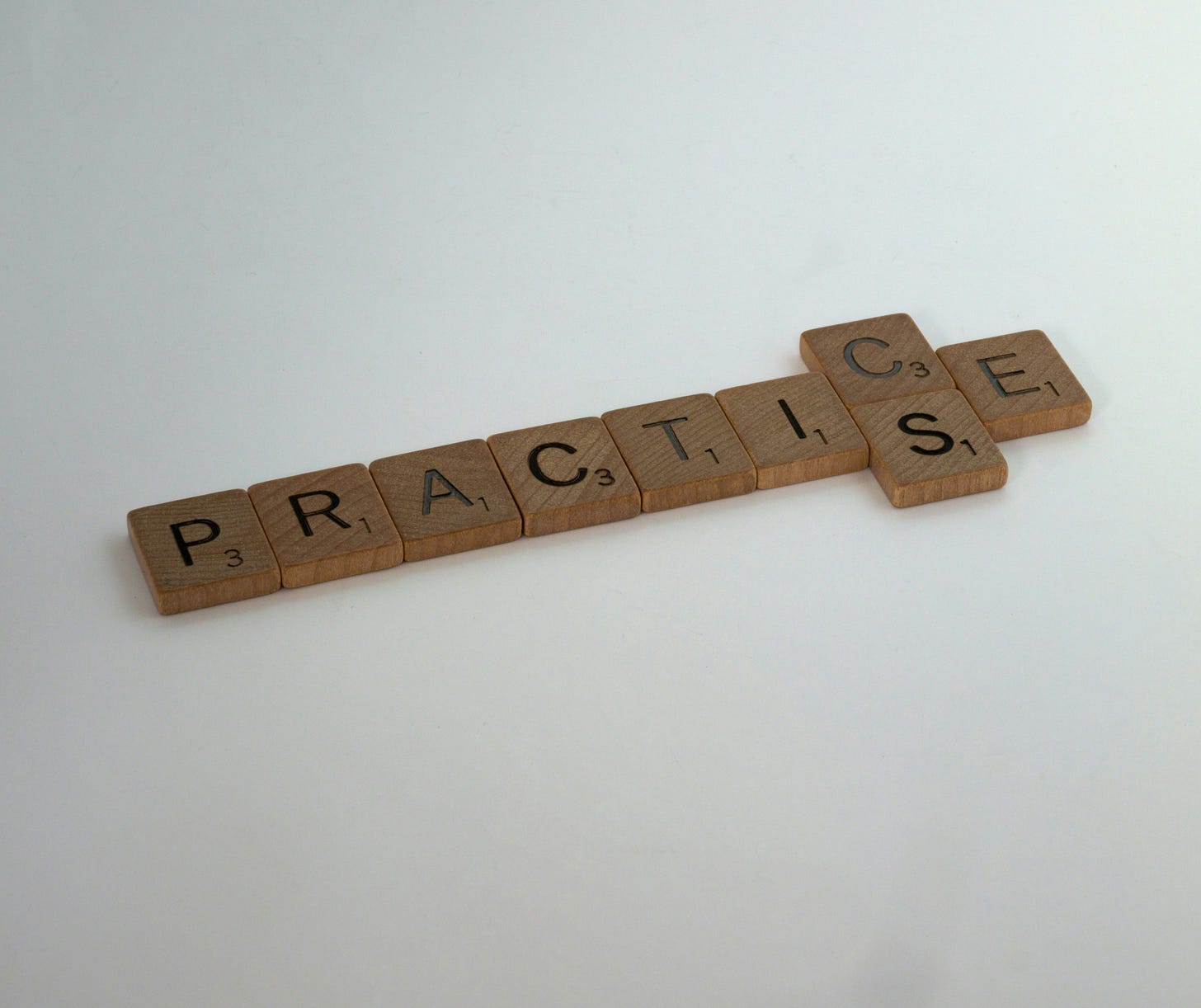If you’ve been following along with my work—through my podcast, speaking events, or the content I share—you might’ve noticed something interesting:
I call what I do The Happiness Practices.
Not The Happiness Method, The Happiness Formula, or The Happiness Framework.
You might be wondering why. Isn’t something like method more solid? More structured? More official?
Sure, it might sound that way. But I chose the word practices very intentionally—because it reflects the real, lived experience of creating happiness that lasts.
Here’s why practices matter more than methods—and why I think this shift in language can change the way we approach our own joy, our relationships, and even how we show up at work.
Happiness Isn’t a Destination. It’s a Practice.
We’ve been taught to think of happiness like it’s a prize. Something you chase down and earn. Hit your career goals, get the house, nail the relationship, land the promotion—then poof! You’re officially happy.
But you and I both know that’s not how it works.
Happiness doesn’t arrive in a box with a bow on top. It’s not a static endpoint. It’s not a checkbox.
It’s a practice.
It’s something we do—over and over again, in the big moments and the small ones. In fact, it’s usually in the tiny choices, the little daily resets, that real happiness starts to take root.
The practice of saying “no” when your plate is full.
The practice of breathing before responding.
The practice of expressing gratitude, even on a hard day.
The practice of turning off your notifications so you can be present with your people.
These aren’t grand gestures. But they’re powerful practices. And that’s the heart of what I talk about in my work.
Methods Are Fixed. Practices Are Fluid.
Let’s be honest—“methods” sound tidy. They imply control. A method says: “Follow these steps and you’ll get this result.”
That might work for baking a cake or filing your taxes.
But life? Emotions? Human complexity?
Those don’t usually stick to a method.
Calling my work The Happiness Practices acknowledges that real happiness is personal. What fills your cup might be different than what fills mine. What worked for you last month might need to shift this week.
Methods are rigid. Practices are flexible.
Methods feel external. Practices are internal.
Methods suggest mastery. Practices celebrate progress.
And in a world that’s already putting a ton of pressure on us to get everything “right,” I wanted to offer something more forgiving. Something more human.
You Can’t Fail at a Practice
This might be the most freeing part.
When something is a practice, there’s no such thing as failure.
You don’t “fail” at yoga because you can’t touch your toes. You’re just practicing.
You don’t “fail” at mindfulness because your brain won’t stop spinning. You’re just practicing.
You don’t “fail” at happiness because you had a rough day. You’re just… practicing.
That’s a message I think more people need to hear—especially in a culture that glorifies perfection and productivity.
When we call something a practice, it builds in permission. Permission to be human. To try again. To grow.
Real Change Happens Through Repetition
Think of the most meaningful transformations in your life. Chances are, they didn’t happen in a single flash of insight. They happened over time—through repeated action, reflection, and learning.
That’s what The Happiness Practices is all about.
It’s not about gimmicks or hacks. It’s about building a rhythm of joy, resilience, and self-leadership into your life, day after day. One breath, one boundary, one moment of kindness at a time.
That’s why I bring on a wide variety of guests on the podcast—from mental health experts to corporate leaders to everyday people with extraordinary wisdom. Each episode offers a new perspective, a new practice, a new way to think about showing up happier, healthier, and more whole.
Let’s Do This Together
If you’ve been chasing a magic method for happiness and feeling like you keep falling short—take a deep breath.
There’s nothing wrong with you.
You’re not behind. You’re not broken. You’re just a human being trying to navigate life—and that alone is worth celebrating.
So here’s your invitation:
Don’t wait for the perfect moment.
Don’t hold out for the “right” system.
Just start practicing.
Start practicing being kinder to yourself.
Start practicing asking for help.
Start practicing joy, even in the in-between.
Because happiness isn’t something you find. It’s something you practice.
And if you’re ready to do that together, I’m glad you’re here.





